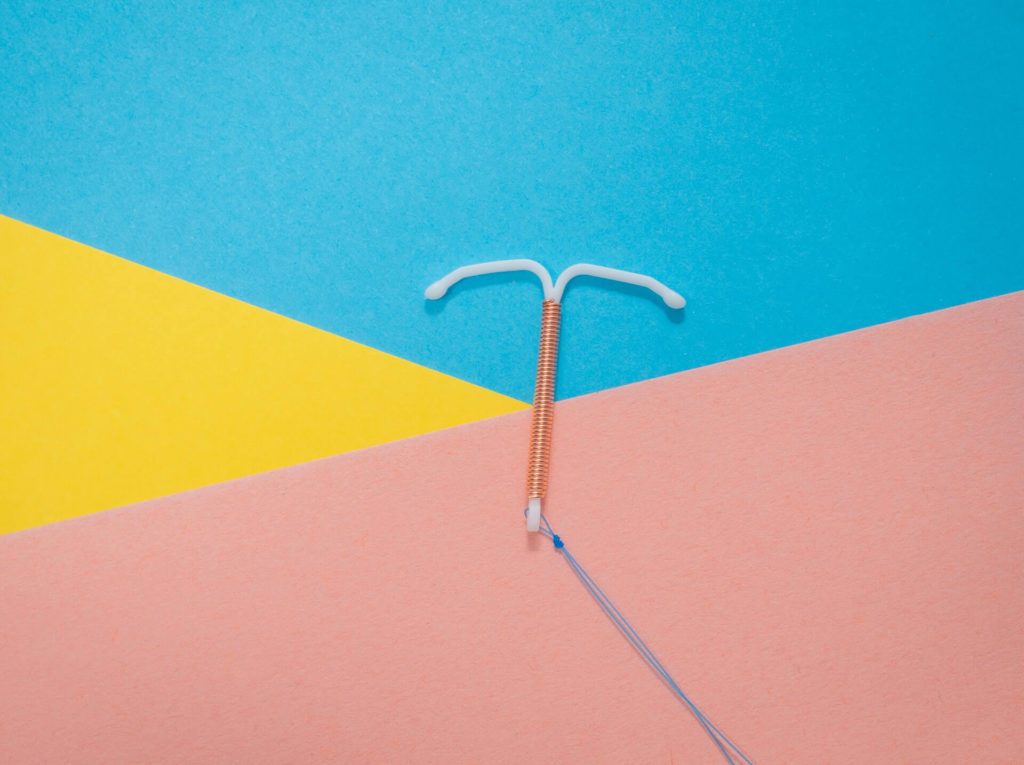An intrauterine device (IUD) is a small, T-shaped device only a doctor or nurse can implant into the uterus in order to prevent pregnancy.
Known to be generally safe and effective, this birth control method is steadily becoming a favorite among women, just behind the birth control pill.
But no form of contraception is completely fool-proof, as IUDs have also been linked to a number of side effects, and one of them is its effect on one’s period.
There are two types of IUDs available on the market: copper IUDs and hormonal IUDs. Both can affect your menstrual cycle in different ways.
Read the article to learn more about how each type of IUD can impact your period.
How Does an IUD Affect Your Period?
Changes on one’s periods can vary from person to person, but these changes mainly depend on the type of IUD you are using.
How Will Your Periods Change on the Hormonal IUD?
A hormonal IUD makes use of a hormone called progestin, which is the synthetic form of progesterone, and releases it into your body.
It prevents pregnancy by thickening the cervical mucus, making it difficult for the sperm to get through the uterus and reach the egg.
Some people use a hormone releasing IUD to ease menstrual symptoms, including heavy menstrual bleeding and long lasting periods. In fact, some doctors or nuses sometimes recommend this IUD for this purpose.
The most popular hormonal birth control products on the market are Mirena, Skyla, Liletta, and Kyleena. They remain effective for up to 3-5 years, depending on the brand.
After 3 months following IUD insertion, you will probably begin to have lighter and shorter periods. For some women, periods may even go away completely.
However, aside from its impact on periods, hormonal IUDs are also associated with other potential side effects. These include:
- acne
- headache
- cramping or pelvic pain
- breast tenderness
- irregular periods
- spotting between periods
- mood changes
- back aches
The changes in your periods while on the hormonal intrauterine device might make you wonder if you’re pregnant. Even if this is a rare circumstance for IUDs, which are known to be 99% effective at preventing pregnancy, it can still possibly happen.
And if it does, it will more likely be an ectopic pregnancy, which occurs when a fertilized egg grows outside a woman’s uterus, most often in a fallopian tube. This type of pregnancy can potentially be dangerous and needs immediate medical attention.
How Will Your Periods Change on the Copper IUD?
Unlike its hormonal counterpart, the copper IUD, also known as the non hormonal IUD, does not make use of hormones and instead prevents pregnancy by releasing copper ions which are toxic to sperm and therefore deactivates it.
However, another thing that sets it apart from its counterpart is that unlike hormonal IUDs, copper IUDs can cause longer and heavier periods and more cramping is also to be expected with this type of IUD.
The only copper IUD available on the market is sold under the brand name Paragard. It can stay for up to 10 years.
But lately, the Paragard copper IUD has been making rounds as it has been the target of many lawsuits. Plaintiffs who have filed a Paragard IUD lawsuit claim that the copper intrauterine device is prone to breaking during removal, which can result in dangerous side effects and complications.
Some of the side effects associated with the copper IUD include:
- intermittent cramping
- irregular bleeding
- spotting between periods
- back pain
- pain after Paragard IUD insertion
Most of these side effects should get better after 3 to 6 months. However, if they don’t go away and even become more severe, talk to your doctor right away.
Aside from the more common side effects mentioned above, Paragard can also cause more serious and rarer side effects. They may include:
- pelvic infection
- pelvic inflammatory disease (PID)
- allergic reactions
- uterine perforation
- scarring
- prolonged menstrual flow
- sepsis (the body’s overwhelming response to a severe infection)
- pseudotumor cerebri (false brain tumor)
- IUD expulsion
- ectopic pregnancy
Serious side effects from Paragard are considered rare, but they can occur. Another disadvantage with IUDs in general is that they do not protect against sexually transmitted infection. Seek immediate medical attention if you experience these symptoms and you are currently implanted with the Paragard intrauterine device.
Looking to Have Your IUD Removed?
If you’re looking to have your IUD removed – whether it’s hormonal or copper – if your doctor can easily access your IUD string, they will most likely be able to remove the medical device hassle-free. Mild cramping is still possible during IUD removal, but it does not have the intensity of the cramping you have experienced during insertion.
Some women have cramps during the process of IUD removal because having the string pulled puts pressure on the cervix. The cervix opening as it allows the IUD to come out may also cause discomfort to women. It should also subside after a short while.
Once you have your IUD removed, your period will go back to how it was before you got it implanted. At times, however, especially with the hormonal IUD, it may take a few months after removal before your period eventually comes back to normal.
It is also important to note that because the intrauterine device is a reversible form of contraception, once it’s out, you can get pregnant right away, even if your periods haven’t come back yet.
So if you do not have plans to get pregnant immediately after IUD removal, make sure to use another birth control method for the mean time.
When to Seek Medical Attention
Both hormonal and copper IUDs can cause dizziness, nausea, temporary pain, or bleeding right after being implanted into a woman’s uterus. A certain amount of these side effects are to be expected after the insertion procedure.
However, if these symptoms last longer than 30 minutes, it should be brought to the doctor’s attention.
In general, people who use the intrauterine device for contraception should seek medical attention if they have these symptoms:
- abdominal pain
- pain during sex
- fever
- chills
- pregnancy symptoms
- missing a period for more than 6 weeks
- irregular or heavy periods after the first 6 months
- vaginal discharge with foul odor
The Bottom Line
In general, IUDs are considered as both safe and effective in preventing pregnancy. However, side effects that may cause other complications and may affect your overall health can still occur in rare instances.
For instance, a person with an IUD can still possibly become pregnant. If this happens and you begin to experience pregnancy symptoms while on IUD, be sure to take a pregnancy test and talk to your doctor immediately.
Becoming pregnant with an IUD can increase your risk of developing further complications.
This is why talking to your healthcare provider is important, as they can offer you medical advice on which type of birth control suits you better based on your medical history.
If you wish to switch to another birth control, you can also talk to your doctor and discuss with them your options, as they can help you with a smooth and safe transition. But be sure to use a backup contraception until your new birth control takes full effect.



